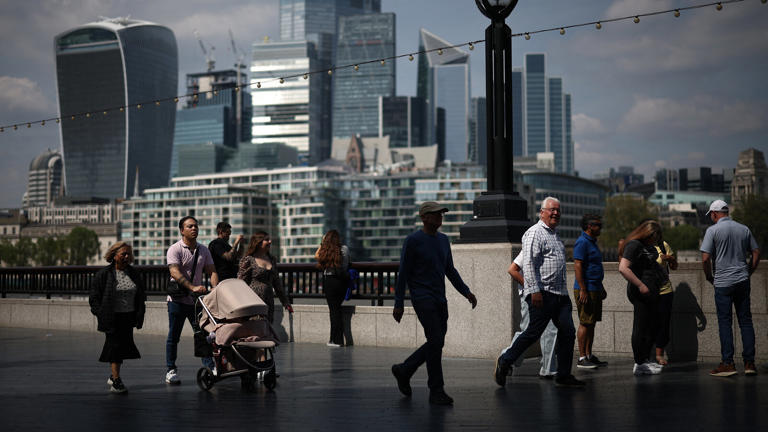Keir Starmer’s Labour Party has embarked on a significant departure from historical economic strategies, particularly those associated with the troubled industrial policies of the 1970s. During that era, under previous Labour governments, attempts to invigorate the British economy through subsidies, state ownership, and centralized economic planning resulted in tumultuous outcomes. The policies intended to revive industries and boost employment often led to prolonged strikes and industrial unrest, which paralyzed key sectors of the economy. Moreover, the government’s efforts to pick winners among industries, such as heavy investment in British Leyland and British Steel Corporation, proved largely ineffective, with these state-backed enterprises struggling to compete on a global scale.
In contrast, Keir Starmer’s administration has adopted a more nuanced approach, combining elements of state intervention with a focus on sustainable economic growth and infrastructure development. This shift in Labour’s economic strategy reflects broader global trends where governments are reasserting control over economic policies to address domestic challenges and enhance national competitiveness, particularly in response to China’s ascendancy and the imperatives of tackling climate change.
The core of Labour’s current industrial policy revolves around stimulating economic activity through strategic investments in renewable energy, infrastructure, and housing. The approval of three large-scale solar farms, for instance, underscores a commitment to expanding green energy capacity and reducing carbon emissions, aligning with global climate targets. Additionally, initiatives like the National Wealth Fund and cross-governmental panels chaired by the Prime Minister aim to coordinate efforts across various sectors to maximize economic impact and ensure sustainable development.
Despite ambitious goals, the Labour government faces significant economic hurdles. Persistent issues include lackluster growth rates, underfunded public services, and a substantial national debt burden, which constrain the fiscal space for expansive policy measures. Nonetheless, Labour’s strategy seeks to address these challenges by stimulating economic demand and investment, thereby laying the groundwork for sustainable growth in the long term.
Compared to counterparts like the United States and the European Union, Labour’s approach to industrial policy is characterized by its relative modesty in financial resources but ambitious in scope. In the United States, President Biden’s administration has pursued a more robustly funded industrial policy aimed at bolstering critical technologies and accelerating the transition to a green economy, albeit amid partisan political challenges. Similarly, the European Union’s industrial strategy emphasizes green transition and digital transformation, navigating complex dynamics among its member states to achieve consensus on joint policy initiatives.
Looking forward, the success of Labour’s industrial policy will depend on its ability to foster private sector confidence and navigate international economic relationships in a post-Brexit environment. The outcomes will also hinge on public reception and adaptation to evolving economic realities, including global market trends and geopolitical shifts. By promoting sustainable development and social cohesion alongside economic growth, Labour aims to position Britain competitively in the global economy while addressing domestic inequalities and environmental challenges.
In conclusion, Labour’s reimagined industrial policy marks a strategic pivot from past failures, aiming to harness state intervention for targeted economic revitalization. As Britain navigates the complexities of a post-pandemic recovery and redefines its economic role post-Brexit, the efficacy of these policies will be critical in shaping the country’s economic trajectory and resilience in an increasingly interconnected world.
